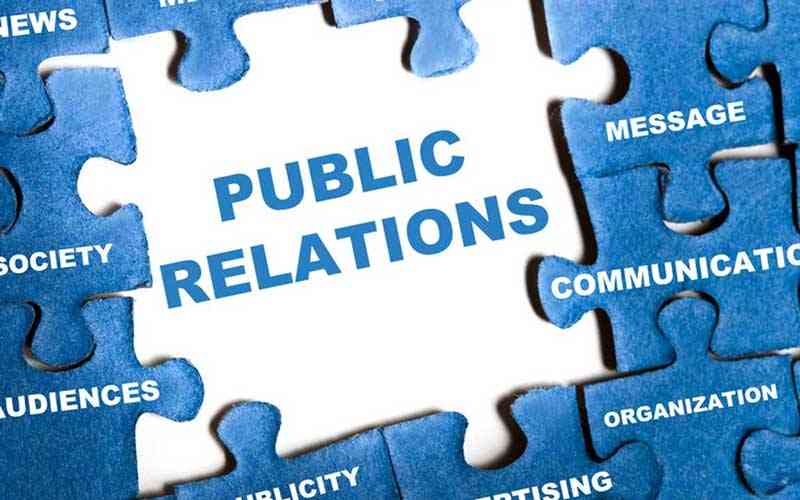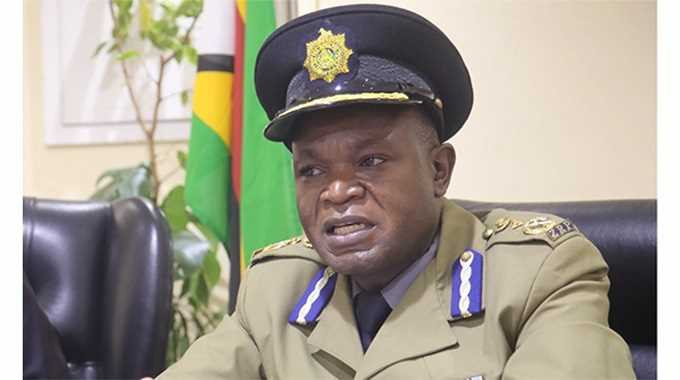
Public relations (PR) helps an organisation connect with its audiences and create a positive reputation for the business.
An organisation may have a dedicated PR department, yet it may need to get the services of an external agency to help achieve its PR goals.
I have worked with several PR agencies both in Zimbabwe and South Africa, including Magna Carta Reputation Management Consultancy, run by Sapi Bachi, Vincent Magwenya’s Conversations Africa, and Purple Room Consultancy run by the director, Thandi Chaotsane-Moticoe. Vincent is now South African President Cyril Ramaphosa’s spokesperson.
Sunshine Corporate Communications consultancy, is the start-up I launched during the outbreak of the Covid-19 pandemic.
We are launching another start-up, Lenox Mhlanga & Associates in June to coincide with my birthday.
My experience working with PR agencies has been that of a crisis of expectations. The question at the top of the minds of most organisations that hire agencies is how they can make sure they get the best results.
I will share some tips and best practices to follow.
Make sure you choose the right one
- Public relations: Why data analytics will save the PR profession
- Madzibaba thrills at IPRCZ awards
- Public relations: Why data analytics will save the PR profession
- Madzibaba thrills at IPRCZ awards
Keep Reading
All PR agencies are different, so you need to find the one that’s the right fit for your business. You should look for an agency that has experience in your industry, understands your target audience and shares your vision and values.
You should also check their portfolio, testimonials and references to see their previous work and results.
You have small boutique agencies and large transnational ones that can hit you in the pocket but deliver excellent value for the money they charge.
Define what you want
After selecting the PR agency you want to work with after a series of pitches, your work with them should start with setting accurate key performance indicators (KPIs).
At your initial meeting, you need to decide what you want to accomplish. Do you intend your PR campaigns to increase sales, and awareness, manage reputation or engage in stakeholder relations?
You should set specific, measurable, achievable, realistic and time-based objectives. This helps focus the agency’s work with laser-sharp precision.
Treat it as a partnership
A PR agency is not a service provider; it’s a partner that can help you grow your business. So, you should treat it with respect and trust, and communicate with them openly and regularly.
You should also involve them in your strategic planning and decision-making processes, and give them access to relevant personnel, information and resources.
Such unfettered access, under strict parameters, of course, will contribute to the success of the partnership.
Be straightforward and provide information
A PR agency can only do its job well if it has enough information about your business, products or services, competitors and market trends. You should be honest and transparent with them about your strengths, weaknesses, opportunities and threats (SWOT), as well as any challenges or issues that may arise during the campaign. A Non-Disclosure Agreement (NDA) is standard particularly where you are worried about trade secrets being leaked. You should also provide them with feedback on their work and suggestions for improvement.
Be responsive
A PR campaign often requires quick action and reaction to changing situations or opportunities. You should be ready to respond to any requests or queries from the PR agency promptly and efficiently, especially when tight deadlines, such as in a crisis. It would be best if you also were flexible and adaptable to any changes or adjustments that may be needed along the way.
The pros and cons of hiring a PR agency
When making the decision to hire a PR agency, you have to consider the many benefits for the business as well as the drawbacks.
A PR agency can bring expertise, experience and creativity that you may not have in your organisation. This is so when specialist services such as in staging events or dealing with crises.
You save time and money by hiring an agency to handle all aspects of a PR campaign from planning to execution. They also offer objective and fresh perspectives on your business and the market.
PR agencies have wide networks and relationships they can leverage. These include media outlets, influencers and other stakeholders that generate positive coverage and exposure for your business.
They also assist your organisation to manage and mitigate any potential crises or negative publicity that could harm your reputation.
But, one has to be aware of the disadvantages presented by hiring an agency. Depending on the kind of services one requires, agencies can be expensive, especially if you hire a large or prestigious one.
They are able to mobilise a tremendous amount of resources to deal with the tasks at hand. It’s a case of putting your money where your mouth is!
Another drawback may be that the agency may not understand your business culture, values or goals, or align with them.
The intricate processes and internal politics are out of reach for the agency unless the organisation is willing to open up to outsiders. I have found that often, organisations are very cautious in this regard.
The coming in of an outsider (the agency) may cause confusion or duplication of efforts if it does not coordinate well with the business’ internal team or other external partners.
PR agencies may have other clients that compete with or conflict with yours or prioritise them over yours. This is why full disclosure is necessary for the agency to avoid conflict of interest.
The lure of a big account may influence an agency to mask the possibility that they are working with a competitor, but from experience, this is rare.
Some PR agencies make promises they can’t fulfil, or fail to meet expectations or set standards.
Hiring a PR agency is an investment in your business's success, so you want to make sure that you get value for your money. The success of the partnership is guaranteed when clear expectations and deliverables are set from the start.
Track them throughout the campaign. Establish a realistic budget and timeline for the campaign, and stick to them as much as possible.
Take time to negotiate favourable terms and conditions for the contract, such as payment methods, cancellation policies or performance incentives.
Evaluate the performance and outcomes of the campaign using quantitative and qualitative metrics, such as media coverage, brand awareness, customer satisfaction or sales growth.
Celebrate the successes and learn from the failures of the campaign together with the PR agency, and share feedback and recommendations for future collaboration.
In conclusion, hiring a PR agency can be a smart investment for any organisation looking to build its reputation, increase its visibility, and improve its relationships with stakeholders.
Yet, it is important to choose the right agency and to establish a clear and effective working relationship to achieve the desired results.
By following the steps outlined in this article, organisations can increase their chances of finding the right PR agency and making the partnership a success.
- Lenox Mhlanga is a strategic communication consultant with over 22 years of experience working with high-profile organisations such as the World Bank and blue chip clients in Zimbabwe and the region. He is available for counsel, training and mentorship on mobile at +263 772 400 656 and by Email: [email protected]










